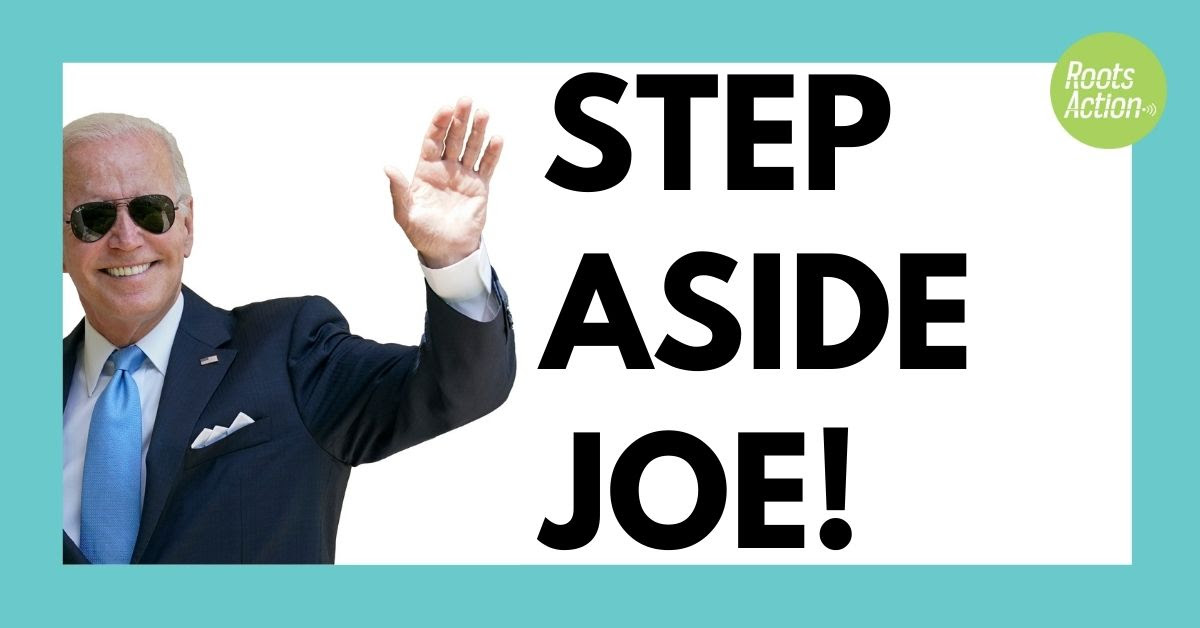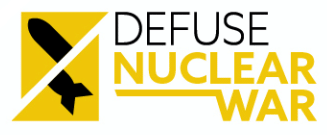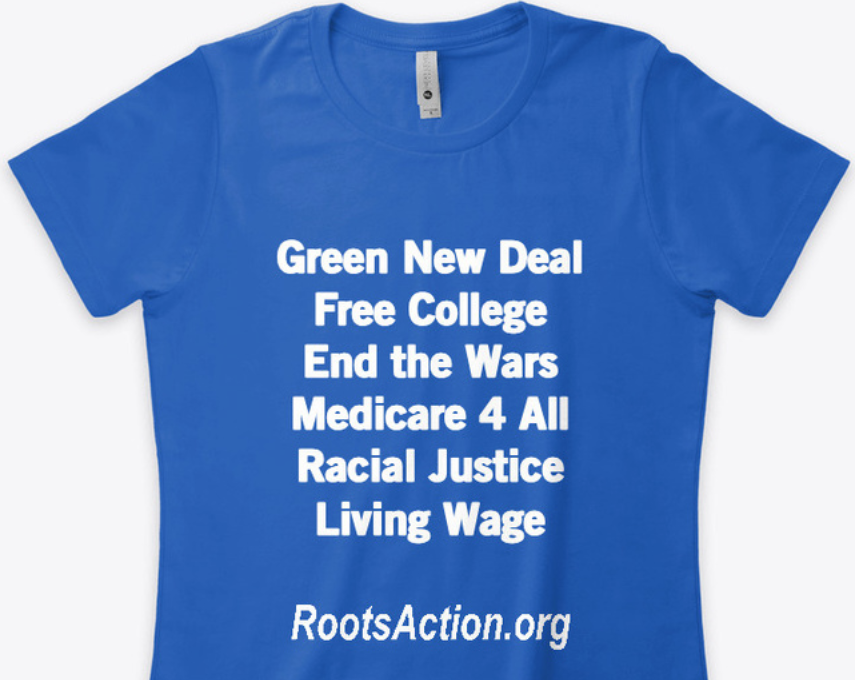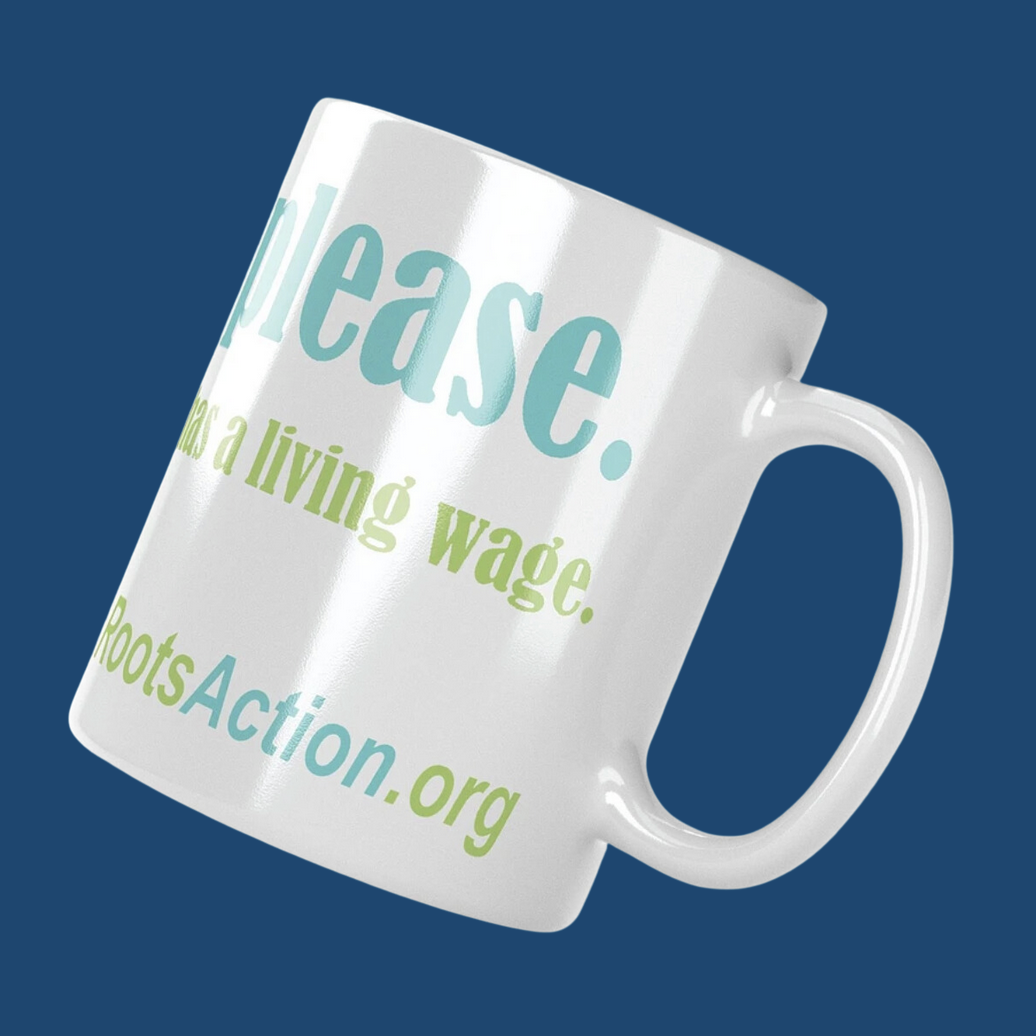Phone calls to the outside world are a lifeline for incarcerated people. Having access to phone calls also reduces violence in prisons and prisoner recidivism rates. So why have we let prisons and private companies charge so much for them?
After Gov. Ned Lamont signed a new bill into law in June, Connecticut became the first state in the US to make phone calls free for incarcerated people, including those in juvenile detention facilities. Studies show that having access to phone calls reduces violence in prisons and prisoner recidivism rates, so why have prisons and private companies been allowed to charge such exorbitant prices for communications between incarcerated people and the outside world? In this week’s episode of Rattling the Bars, Eddie Conway speaks with Dr. Venezia Michalsen about why Connecticut’s new law is so significant and why other states should follow suit. Dr. Michalsen is associate professor of Justice Studies at Montclair State University and author of the book Mothering and Desistance in Re-Entry.
Eddie Conway: Welcome to this episode of Rattling the Bars. The prison industrial complex gets money from people, the poorest people in the nation. It gets billions and billions of dollars. One of the things that sticks out the most is the amount of money taken by multinational phone call systems that work with prisons and the state governments. And something tremendous just happened recently in Connecticut. Connecticut passed a law, and the governor signed it, making phone calls free for families between families and prisoners.
Joining me today is Dr. Venezia Michalsen who is an associate professor who worked on this campaign, and she’s going to walk us through this and tell us what happened, why it happened and why it’s important. Dr. Venezia, thanks for joining me.
Venezia Michalsen: Thank you so much for having me today.
Eddie Conway: We could start off by maybe you talking about why the cost of phone calls is such an important factor in what happens to prisoners and their families.
Venezia Michalsen: Absolutely. You know, we could be here all day talking about that. You have to think about it in terms of the people who are on the outside, the families who are supporting their loved ones who are on the inside. They have to pay these inordinate costs to just keep in contact with their loved ones. People often say, “Well, I don’t want the taxpayers paying for these phone calls.” Except the taxpayers are already paying for these phone calls. Overwhelmingly, they are women, they are mothers, they are grandmothers who are holding it down on the outside, often taking care of children. And they’re the ones that are paying the cost for the phone calls on the outside so that people who are on the inside can stay connected to their families and to their communities.
Now, as you know better than I do, people on the inside need that tie to the community, need that tie to their families so that they can both plan for their inevitable, for almost everyone, their inevitable return to the community, and maintain those ties that will remain when they come out and will be the bedrock of their re-entry. But also so that they can reduce their stress while they’re inside. We know that connecting people to their families, whether it’s through visits or through emails on these tablets that are being given out now, or whether it’s phone calls, we know that those not only do they reduce infractions while people are inside, but they also reduce recidivism while people are coming out after they’ve reentered.
Eddie Conway: Okay. And of course, I’ve experienced that for decades myself and I can testify that the phone system is a lifeline to not only your family, but to keep violence down inside the prison. Because a lot of times prisoners are frustrated, they’re angry, and they need somebody to talk to. They can’t talk to anybody. They talk to their family, their families talk them down, or they get a chance to talk to their children and they talk their self down. So it’s very important. Had a campaign like this been organized anywhere else in the United States for free phone calls?
Venezia Michalsen: You know, Connecticut, I’m very proud to say that I and, but even more than me, my team members. I’d just like to name them quickly, Bianca Tylac, who’s the director and founder of Worth Rises, Diane Lewis with Voices of Women of Color, whose son was incarcerated for many years and she had to talk to her son in the dark because she couldn’t pay the light bill, or she chose to pay the phone bill before the light bill. And then J.O. Richardson, who himself was incarcerated for many years. We’ve fought together with a number of other people for free phone calls in Connecticut as the first state in the nation to have free phone calls. But before us, New York City in its jails has free phone calls and also a few cities in California, San Diego, San Francisco, but there are also a number of states now if people are interested in fighting for free phone calls, we should be fighting for it in every state and federally obviously.
But Massachusetts has a campaign that’s pretty active. Michigan, Louisiana. Miami’s got one. So there are a number of places that are fighting for free phone calls around the country. And activists are ready to make this happen all over the country. And then once we’ve got phone calls, then we’re coming for everything else. All of these other places where the prison industrial complex is bleeding our communities, particularly our black and brown communities, and particularly women within those communities, where the prison industrial complex is bleeding those communities dry. We’re ready to come for that next.
Eddie Conway: Yeah. One of the things that that struck me was that in Connecticut phone calls costs 10 times more than other states. There’s no regulation across the board for phone calls, because that seems like exorbitant?
Venezia Michalsen: It was. We got to a place where it was almost 33 cents a minute for a phone call. We were 49th in the nation. And then during COVID, we dropped to 50th, which, as you say, when people are on the inside and they’re stressed out, they need their families. And COVID made that even worse. People worried about getting sick. People were worried about their families getting sick. They were isolated because visits were stopped. So that we got to a place where it was even more imperative that people got to connect with their families and with people on the outside, and Connecticut maintained that lack of affordability. But at the end of the day, there were kickbacks going to the state. We had a 68% commission going to the state of Connecticut and then Securus on top of that was making 10 cents a minute off of these calls. So what’s the incentive to stop them?
But what happened here in Connecticut is tireless, tireless advocates who spent countless hours talking to legislators, turning legislators over. We had people from both sides of the aisle who were looking at this and saying, “This is wrong.” And this was a bipartisan. The bill passed in a very bipartisan way because people finally heard the voices of directly impacted people and said, “This is wrong. We have to change this. We cannot be making money off of the backs of our most disadvantaged people.”
Eddie Conway: Just for the public’s sake, what kind of money is involved nationally in these prison phone calls?
Venezia Michalsen: I mean, this is a multi-million dollar business. The man who runs Securus is Tom Gores, who owns the Pistons. And not only that, but these are businesses that are in all of our… You know our 401ks, our investments, everybody’s got a toe in these profits and what we need to do, and what an organization like Worth Rises is doing, is finding ways to move towards starving the prison industrial complex out. How do we make it so that they cannot make money any more off of caging people and so they will look towards somewhere else to make that money. But it’s absolutely a multi-million dollar business. The same as with food services, the same is with commissary. All of these ways, sheets and architects, all of these ways in which the prison industrial complex makes money off of caging people, in particular black and brown people.
Venezia Michalsen: So how across the nation can other people and other prison rights advocates get involved?
So a way for people to get involved is connecting families. If you go to the Worth Rises website, you can see there are a number of campaigns. If someone is interested, they can go into either, if their state… You know, somebody in Louisiana, for example, or Massachusetts, they can connect immediately with advocates who are already fighting this fight with bills in those states, or in some cities like Miami. And if there isn’t currently a campaign, then they can contact Worth Rises to get more information about how to start the fight in their state or in their city. Because it’s absolutely time. If we went, in Connecticut, from 50th, from last place in the nation, to the first in the nation to be free, then anyone can do it.
Eddie Conway: Yeah. That’s amazing. I get this all the time, people in the public, conservatives, even church people, et cetera, “Well, prisons are not supposed to be comfortable. Prisons are supposed to be where you punish people at and so why should we be making their life any better?” And I think early on when you first talked about it, you touched on it a little bit, but talk a little more about the impact that kind of attitude has on both families, prisoners, and society at large later on in life.
Venezia Michalsen: Absolutely. So what I love to say in response to that is that such things as prison phone calls, or making commissary more affordable, or paying people for their labor, unionizing people who are incarcerated. I know that’s something that you worked on where prison labor happens, making it so that they’re actually making a minimum or living wage. All of these things, they may make people uncomfortable. They don’t make me uncomfortable, they probably don’t you uncomfortable, but they make a lot of people uncomfortable. But to me, the point is that its a win, win, win, win, win across the board. It’s good for the incarcerated people because they’re able to make a plan for their re-entry to society. And as I say, almost everyone that to prison is going to come back into the community.
So you’ve got to stay connected to people. You have to make it so that while you’re inside dealing with inhumane circumstances, you’re able to cope and stay connected. But it’s not just good for incarcerated people. It’s also good for their families because we’re not making it so that we’re even widening the racial wealth gap. So that black and brown women on the outside are even poorer because corporations are bleeding them dry. So if we cut that out, it’s even better for them. It’s also better for children because when children can remain connected to their family members, no matter whether their family members have made mistakes or not, they still are better for their children when their children are able to stay connected to them. It has better effects on them educationally, emotionally, academically, all of these different… Physically, all of these different ways it’s better for children when they can stay in touch with their loved ones.
So children, families, incarcerated people, but even if you’re conservative in such a way that you’re worried about CO’s and you’re worried about tax payers, it’s still better for them as well. If you’ve got a correctional officer working in a facility and you’ve got the people that you’re working with who are caged there, who are more able to cope, who are less stressed out, who are engaged less in infractions, your job is better. And let’s be honest, CO’s on the outside have astronomical rates of domestic violence, of substance abuse, of suicide, all of these different things because prisons are not humane and they are not places where we should have anyone, whether they’re working there or caged there.
And then lastly, when it comes to taxpayers, would you rather pay a little bit upfront or pay a whole lot later. When we’re talking about connecting people to their families, if we’re able to connect them with their families, recidivism rates absolutely plummet, whether it’s phone calls or visits or whatever it is. Recidivism rates plummet. And if we’re paying for jails, hundreds of thousands of dollars per year, per person, or in prisons, tens of thousands of dollars per year per person, if I only cared about my tax dollars, I would much prefer that someone get released and then stay outside, get a job where they can become a taxpayer themselves, go back to their families so that their kids can excel in school and do better, than have them caged on the taxpayer’s dollars.
So even though people may feel uncomfortable in a way that is sort of related to blood thirst, if you’re really concerned about humanity, then connecting people with their families and frankly not caging people in the first place is in the best interest of absolutely everyone.
Eddie Conway: Okay. So now that brings me to the point you said earlier that a billionaire up in Detroit was gaining obviously from people missing their meals or electricity on the ground. Who’s the major players in this telephone network across the country. It’s like three or four major systems. Who are they?
Venezia Michalsen: It’s very few organizations. Securus, which was related to JPay. You know, I’ve got JPay on my phone so that if I want to send money to somebody who’s inside, that’s how I can do it, and they’ve sort of got a corner on that market. And in Connecticut, Securus is the one that has the corner on that and through most of the country.
Eddie Conway: Okay. All right. I know it’s part of the prison industrial complex itself, but it’s the state in Connecticut, obviously the state was benefiting from it and showed no interest in not getting that profit. Is states across the country-
Venezia Michalsen: Well.
Eddie Conway: Okay, talk to me about that a little bit.
Venezia Michalsen: You know, it depends state by state. So in Connecticut, for example, they were getting a 68% commission, but you know other states are getting far, far less commission. But they certainly are getting a commission off of this. And one of the reasons that we weren’t able to pass this bill last year was because people were worried about how we were going to pay for the things that the kickbacks from phone calls we’re paying for. So that was the major hurdle was, “Well, how are we going to make the money?” And ironically, the kickbacks were paying for probation programs, so it was sort of this odd cycle where communities were even paying for the community supervision of their own family members. But you got to find that money somewhere else.
Eddie Conway: Okay. So talk a little bit about where this campaign needs to go next. Okay, I understand it’s like October 2022. October the first, it will be in place for juveniles I believe, and the 22nd it will be in place for adult prisons. Where does this campaign go now beyond this?
Venezia Michalsen: Obviously we want to spread this throughout the country. We’d like phone calls to be free everywhere. But then in terms of what we fight for next, there’s all of these places where we can starve the prison industrial complex of its profits. We can fight for commissary to not have these exorbitant fees attached to it. There’s so many things. Fighting for the decriminalization of sex work, for example. In Connecticut, we also just had marijuana become legalized and that’s something that should be happening around the country. At the end of the day, the point is, how can we empty our prisons? Not only do they not work as so-called correctional facilities, but they are counterproductive in every which way. They do not work. They are bad for everyone.
So how can we empty out our prisons? And then also in the meantime, how can we facilitate that emptying by starving it of its profits? There’s so many millions of ways that people are making money off of it. The DMV, for example. You’ve got people who are on the inside who are getting paid pennies an hour to answer phones for the DMV, for example. It’s unconscionable. So how can we sort of move forward in emptying our prisons in that way by making it not profitable anymore?
Eddie Conway: Okay. So if you had anything to say to the public, like final words, especially for those… And I like the fact that one of your team members is like a mother. I kind of like watched her talk. I watched some of the interview and the poverty of most prisoners, I mean, most prisoners are in prison because of probably the need to get money or for something. A small percentage is for passion and so on, but most people are in marijuana or drugs or whatever. And so these are the most impoverished people and then they in turn impoverish their families. And it’s a hardship for the family members to organize and have time to do stuff. So if you could talk a minute about what they can do from whatever position they’re in economically, that would probably help.
Venezia Michalsen: Yeah. For me, my greatest honor is to be able to be connected to directly impacted people in the community, whether they’re formerly incarcerated people or whether there are people who have family members incarcerated. I think really most of all, what I’ve learned in my life, is that every tiny little bit counts. So even if you’re just liking something on Facebook or following something on Twitter, so that you can just be a little bit more informed every day and talk to people every day. It’s about showing the humanity of people on the inside and people who are supporting their loved ones on the outside.
And once we all recognize that we’re all in this together and that caging people doesn’t do anything at all, then slowly those tiny little steps that no step is too small and then just making that connection, making that friend, subscribing to that newsletter, that all of us collectively together can really make that change over time. I believe that very strongly.
Eddie Conway: Okay. Thank you. Appreciate that. That’s good information and continue to keep up the good work.
Venezia Michalsen: Thank you so much. I very much appreciate you having me on today.
Eddie Conway: Okay. And thank you for joining this episode of Rattling the Bars.
Published by The Real News.










